[Spoilers for Groundhog Day, Happy Death Day, Palm Springs, The Legend of Zelda: Majora’s Mask, Deathloop, Twelve Minutes, Oxenfree. Content warning for Twelve Minutes’ incest plotline.]
Every time loop narrative is about growth and love.
We all know what a time loop narrative is, we’ve all seen Groundhog Day or heard it referenced in any of the subsequent movies or tv episodes that contain this trope: a character (or characters) is trapped in a set amount of time (often a single day but sometimes up to a month), and their goal is to escape. Sometimes the character knows what’s causing the loops and sometimes they even know how to end the loops, but like with all stories, it’s about the journey not the destination.
Groundhog Day is the story of a man trapped in a time loop, but more importantly, it’s about a man who learns to open himself up to new experiences and get a new lease on life. Audiences like watching this transformation, the way all that suffering and pain turns him into a better man. And oh boy is there a lot of suffering and pain. Phil tries to die multiple times, he has to watch a homeless man die and know he can’t save him, he has to deal with the fact that he knows so much about Rita and she doesn’t know a single thing about him -- and this was marketed as a family movie! Though that last bit is probably how Adam Sandler feels every day in 50 First Dates.

(Fun little note: the LIs in this movie and in Edge of Tomorrow, the sci-fi action-adventure version of Groundhog Day, are both named Rita. What a funny coincidence!)
Some movies have embraced the suffering and pain aspect. Happy Death Day is about a woman who gets caught in a time loop that keeps ending with her brutal murder and starting on the morning of her death. Again, she is at first shallow and discontent with life but as the events of the loop begin to weigh on her, she starts to change and makes a concentrated effort to appreciate the things and people around her. Again, it’s all about watching this person go through hardship and come out better. (Although of course they don’t have to come out a better person, they can come out a worse person, but for the moment let’s just assume that having a dynamic character instead of a stagnant one is a good outcome.)
In short, time travel movies are about watching someone go through a set of circumstances that lead them to learn to love the people around them and become someone better.
Isn’t that just every movie?
Indulge me in this hypothetical: a movie is a set of events constrained within a certain time period that, no matter what happens, will repeat the exact same way over and over again. There will never be a moment when you’re watching Moneyball and this time the A’s win. Those characters are trapped in a set of circumstances, forever, and yet we also see those people go through their own hardships and come out changed. We see Harry and Sally go from weird acquaintances to friends to awkward post-one-night-stand to Harry realizing he was being a jerk and that love is worth it and blah blah blah.
Depending on what type of belief you have in the workings of the universe (please continue to bear with me), you could reasonably believe that somewhere out there in the multiverse, every time you watch When Harry Met Sally or Moneyball or whatever, you are creating a time loop. You are forcing these characters to relieve these events the exact same way. But, despite the characters’ unawareness of the fact that they’ve done this time and again, they still change from who they were at the beginning of the film to who they are at the end.
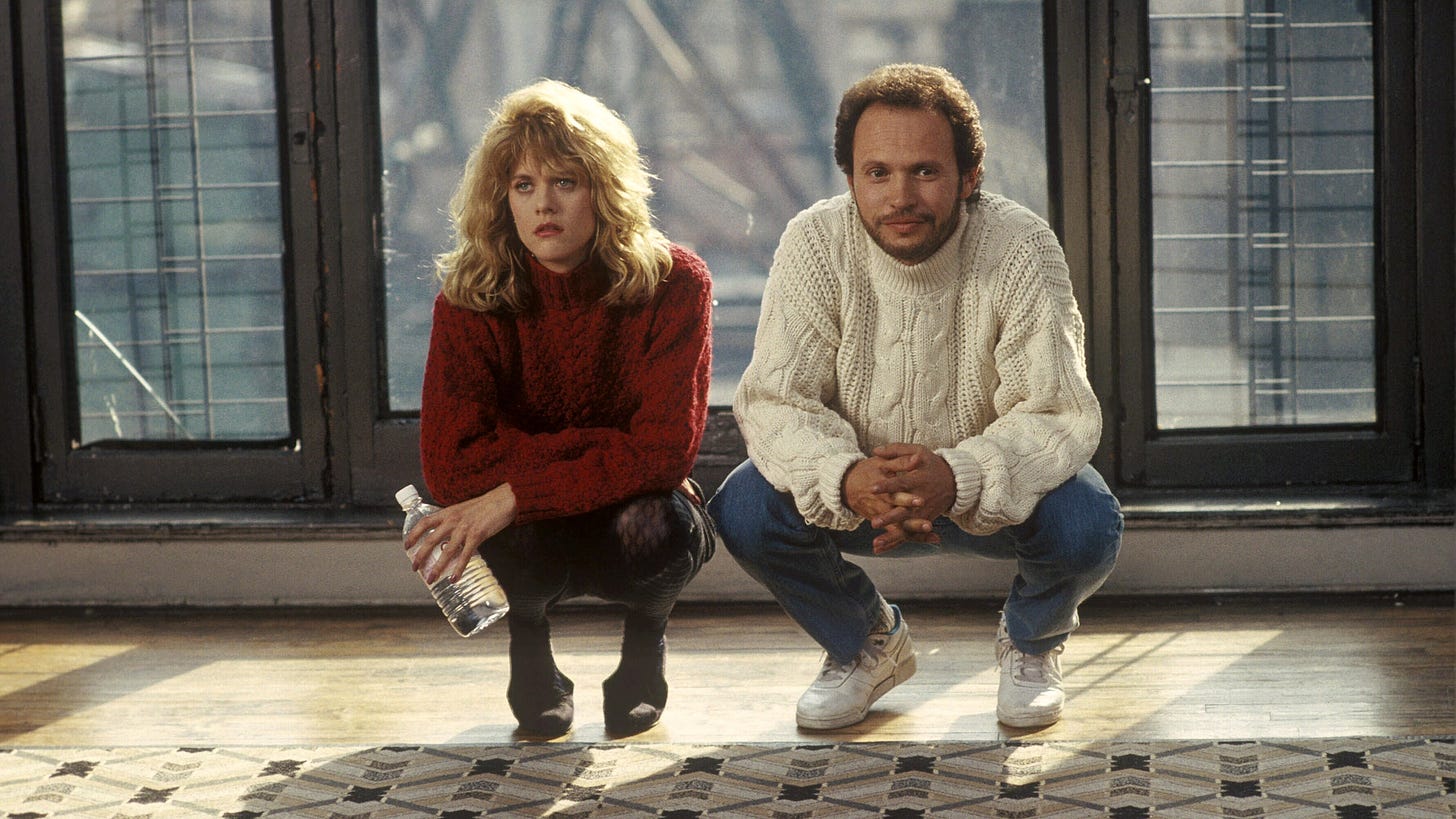
What I’m trying to say, if you’ve been unable or unwilling to follow along, is that if time loop narratives do the same thing other narrative devices do, why are we obsessed with them?
This issue becomes more apparent when you compare video games with time loop narratives to those without.
The inherent nature of video games leads them to be a time loop narrative in which you, the player character, are Phil Connors. Some games lend to this less easily -- sure in this “loop” of God of War you can choose not to do this sidequest but you’ll never be able to hug Atreus (side note: Kratos you named your son after the most cursed family in Greece like...what did you expect my dude?) -- but immersive sims are perhaps the best example.
For those of you who don’t know video games and have kept reading this far as an obligation to our friendship, an immersive sim is, as described by Gene Park of the Washington Post, a video game with the world “always designed with rewarding player choice in mind.” What you choose to do (or not do) matters, and your experience isn’t going to be exactly the same as someone else’s.
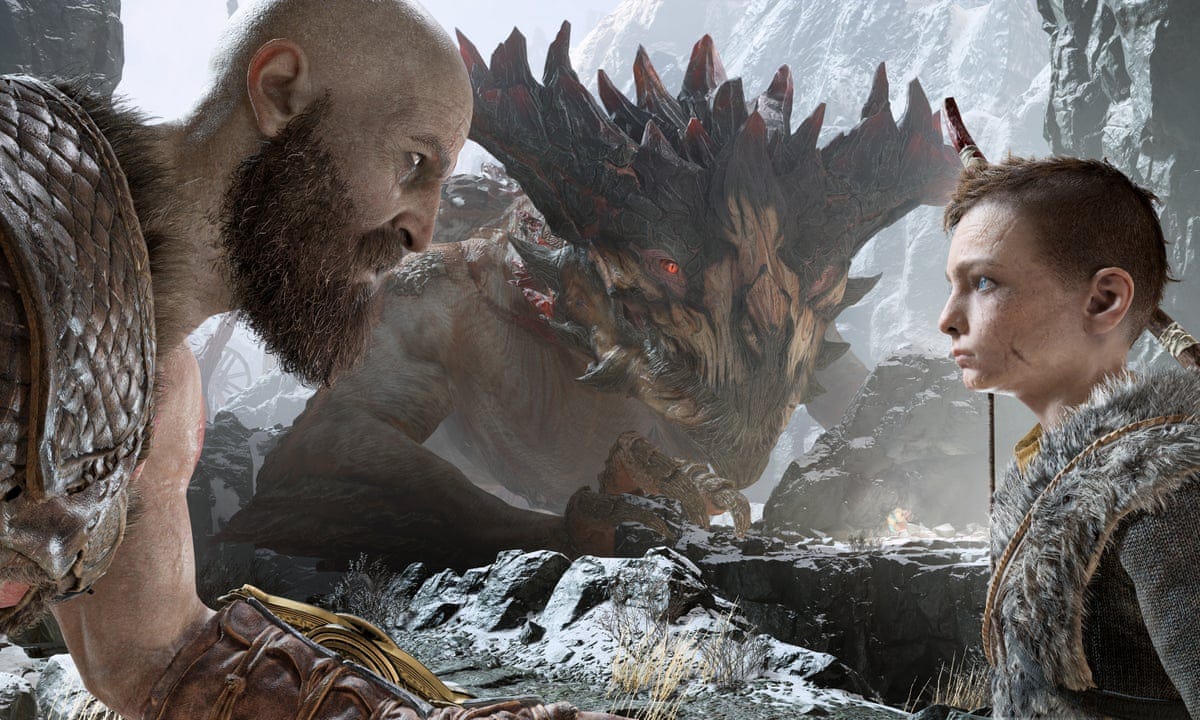
Let’s pick a completely random game as an example: the Dishonored series by Arkane. Depending on what you choose to do in the game and how you go about the missions, you can be an incredibly stealthy assassin gifted with dark mystical powers by an otherworldly god-like being, or you can be some guy who keeps getting caught by guards and having to run away while some emo twink tries to flirt with him. You can end with a world marred by pain and darkness, or with hope and future. And when you’re done with one version, you can hit “New Game” and start all over again making different choices.
So, if you have this option to do what is essentially a time loop, why would you play a video game about a time loop? Wouldn’t you just play a video game?
What makes the narrative aspect of a time loop special?
To answer this, for both mediums, let’s explore what is arguably the best video game of all time but certainly the best time loop video game of all time -- The Legend of Zelda: Majora’s Mask.
The Legend of Zelda series has a deeply complicated timeline (multiple timelines actually). All you really need to know for this game is that Link is a child who saved the world from certain doom and is now wandering the land looking for a lost friend. A mischievous little kid possessed by the spirit of an evil mask, the titular Majora’s mask, whisks him away to a parallel world that is going to end in three days when the evil smiling moon will crash down onto the land. Look, just roll with it.
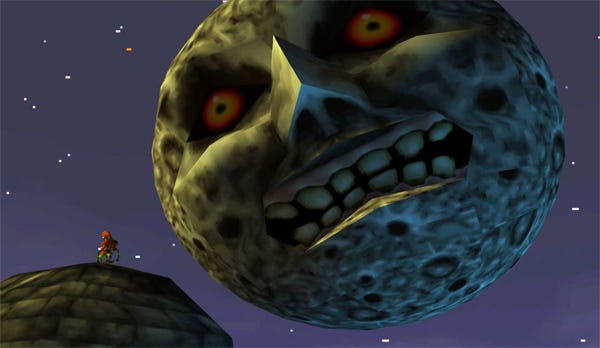
Right before the moon crashes down for the first time, Link remembers he has the blessing of the Goddess of Time and plays a magical tune on his flute that resets him back to the first day. He discovers through plot exposition that he must awaken the four giants, guardians of the world who will stop the impending doom of the moon crashing into the planet. (What did I just say about rolling with it?)
To get to these guardians, you as Link have to complete a bunch of quests that take you all over the world and helping random people with their issues before the world ends. And also stopping the world from ending. You know. Like you do in a video game. When you help someone, you gain their mask -- the in-game mechanic is that it transforms your appearance and gives you access to special locations or abilities. In-universe, it’s literally putting yourself in someone else’s shoes.
To help people out, you have to follow them around during your loops, learning what it is they do every day by watching their little routines. You talk to them again and again, sometimes when they remember you and sometimes when they don’t, until you discover what it is they need and how to help them. You have to understand this person and once you do, you get a mask that symbolizes this relationship you have with them.
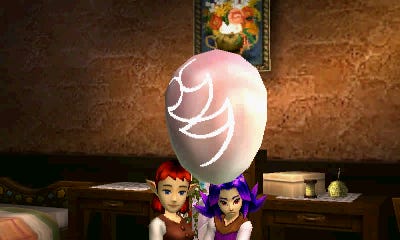
At the onset of every new cycle, however, the people you helped forget you helped them. Sure you can do their entire quest again, but there’s no way to do every single quest in one cycle and still have time to return to the main quest to defeat the mask. In one quest, you get two help two lovers reunite over the course of three days. It’s real nice. You get them back together in the nick of time, right before the world is about to end, and then.
Then you have to see them the next cycle knowing they remember nothing about you. Knowing that they’ll never be united because last time, it only happened because of your intervention. You just have to live with the mask they gave you and the memories of what happened. But it’s not just you the player – it’s also Link the character. He knows what he’s done and, in the world of the video game, he is the only one.
Do you see what I’m getting at?
Let’s talk about Deathloop.
Deathloop works in the same way any time loop narrative does: you, Colt, have no idea why time is repeating and you’re trying to get out. It’s kind of like Majora’s mask, except it’s only during one day and instead of going around following people and learning their routines to help them, it’s to kill them. Yay, fictional murder!
There is another notable difference: someone else is aware of the loops too. This mystery woman will sometimes talk to you over your radio during your missions and say cryptic things about a past you and Colt have no memory of, or about a world you both also have no memory of. And sometimes, she’ll show up in person and try to kill you.
There are, technically, other things this game is about, but not really. It’s mostly about your relationship to this mystery woman and how it progresses throughout the events of the game. You develop a sort of silly little banter with her, even in the middle of all the murder, and you both form a begruding respect for one another. The kind developed between people who really get what the other is going through, no matter how much they hate the other. The kind between people who can remember each other.
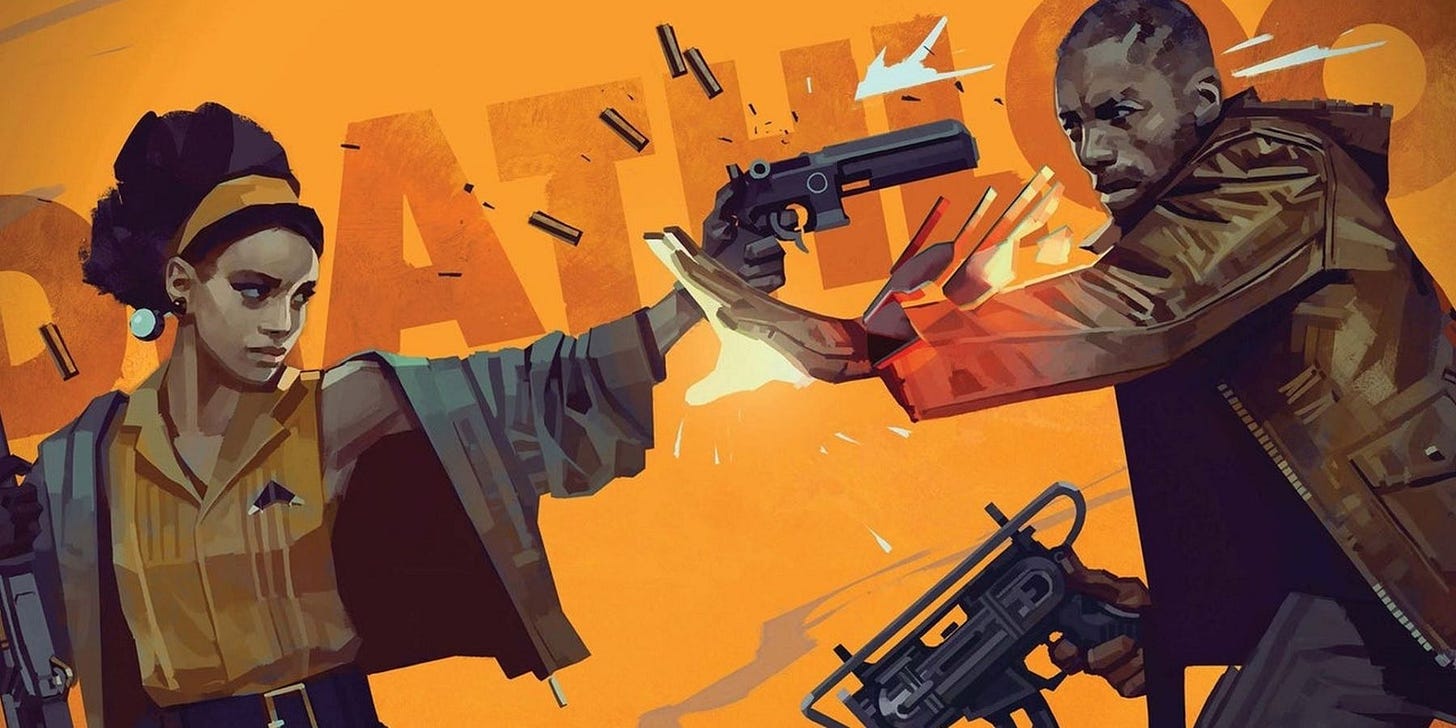
Then you find out who she is: your daughter, Juliana. Your daughter who had been trapped in this loop with you for longer than you can remember. Then you find out why she’s been killing you: in retaliation for all the times and times you’d killed her to try to help her escape the loop. Obviously, that didn’t work. All it did was foster resentment between you and your only child to the point where she admits to getting pleasure out of killing you. Video game dads, amirite?
When you confront her in the final moments of the game, you have (technically three but really,) two options: you can either stay in this eternal loop and live a basically immortal life with your daughter, or you can kill her and yourself to break the loop. Juliana really wants you to stay. She sits you down and tells you about all the great things you could accomplish together in this eternity with her. But if you choose to end the loops, she says she will never forgive you.
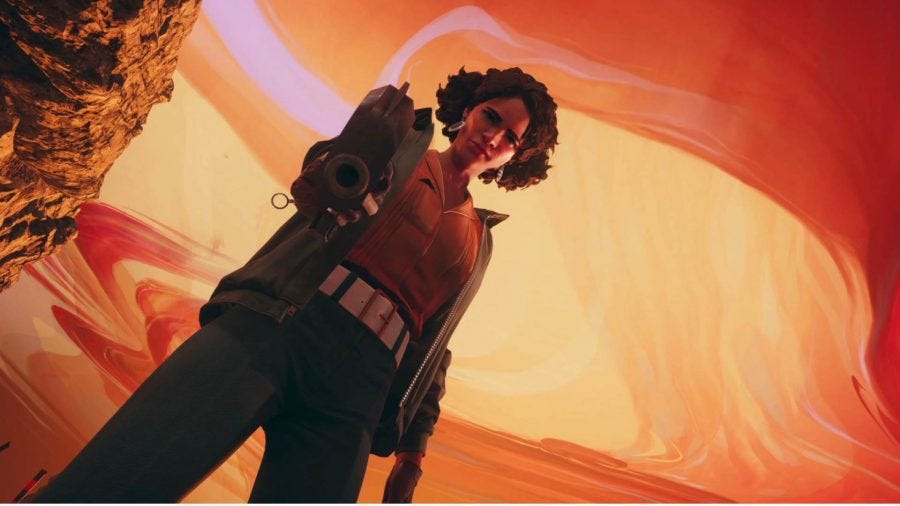
Go with the first option, and you’re treated with more fun banter between you and Juliana. Your relationship has healed, you’re getting along, things are looking up. But you’re still stuck in the loop. This will be your life, forever.
Go with the second, and you wake up to her pointing a gun in your face. She doesn’t kill you, though. She just leaves, leaving you stranded on the precipice of a brand new world. One that moves on. You’ll never have your daughter again, but at least she’s free to live and die. For real this time.
Let’s have an aside, real quick. Remember Palm Springs? It was a movie on Hulu, people were really crazy about it for a hot minute because Andy Samberg was in it? You know Andy Samberg? He’s kinda like normie John Mulaney, who is normie Bo Burman, who is the comedian for Phoebe Bridgers stans? You know?
This will sound insane for someone who has seen/heard of both Palm Springs and Deathloop, but they’ve got the same conceit: two (actually three) people are trapped in a loop together; retaliatory murder for getting someone trapped in a time loop is involved; there’s some, for the lack of a better word, hedonistic acceptance of a world without consequence. And then, ultimately, there is the point where one person wants to leave and the other has to decide if they’re willing to go.

Here’s where they get slightly different: in order for Andy Samberg to save his relationship with Cristin Milioti, he has to give up the consequence-free lifestyle he’s grown to rely on. For Colt, it’s completely different – he has to choose between saving his relationship with Juliana, or face a life with consequences.
Why is a life with consequences so desirable? Yes we want our actions to have meaning, but that includes having to suffer. What is so important about meaning that it is worth so much to us?
Let me talk about two more video games. I promise, these are the last ones: Twelve Minutes and Oxenfree.
You may have heard about Twelve Minutes. A lot of people hated it! And no, not just for the incest; if people hated things solely for incesteous content, no one would’ve watched Game of Thrones (I did not watch Game of Thrones). People hated the fact that a core part of the game was drugging and torturing your wife/sister, and the fact that none of it was actually real it was all in your head. Sure, video games aren’t real but it felt like a slap in the face. Nothing mattered. You go through and try to solve this mystery of why this guy is trying to kill you and your wife and why time keeps repeating but in the end, it turns out there is no mystery. It was all happening in your head because you refused to accept the truth that your wife is your sister.

Oxenfree is different. Its time loop mechanics are a little weirder. Without spoiling too much, (because I want you to play it if you haven’t) it’s about a group of teens and their one really weird night on a haunted island. There are instances where time keeps repeating and you have to break out by fixing something or talking to someone or tuning your radio. But what really gets me is what happens if you play again.
I mentioned this earlier, about how all media is a loop, but there is a slight difference here if you start a New Game +. Here, the game recognizes your previous choices. It knows you’ve been here before and it reflects in the narrative and, in a way, changes the entire story. Again, I won’t spoil what this means for the game as a whole, but trust me, it’s good. It means what you do has consequences. What you do matters.
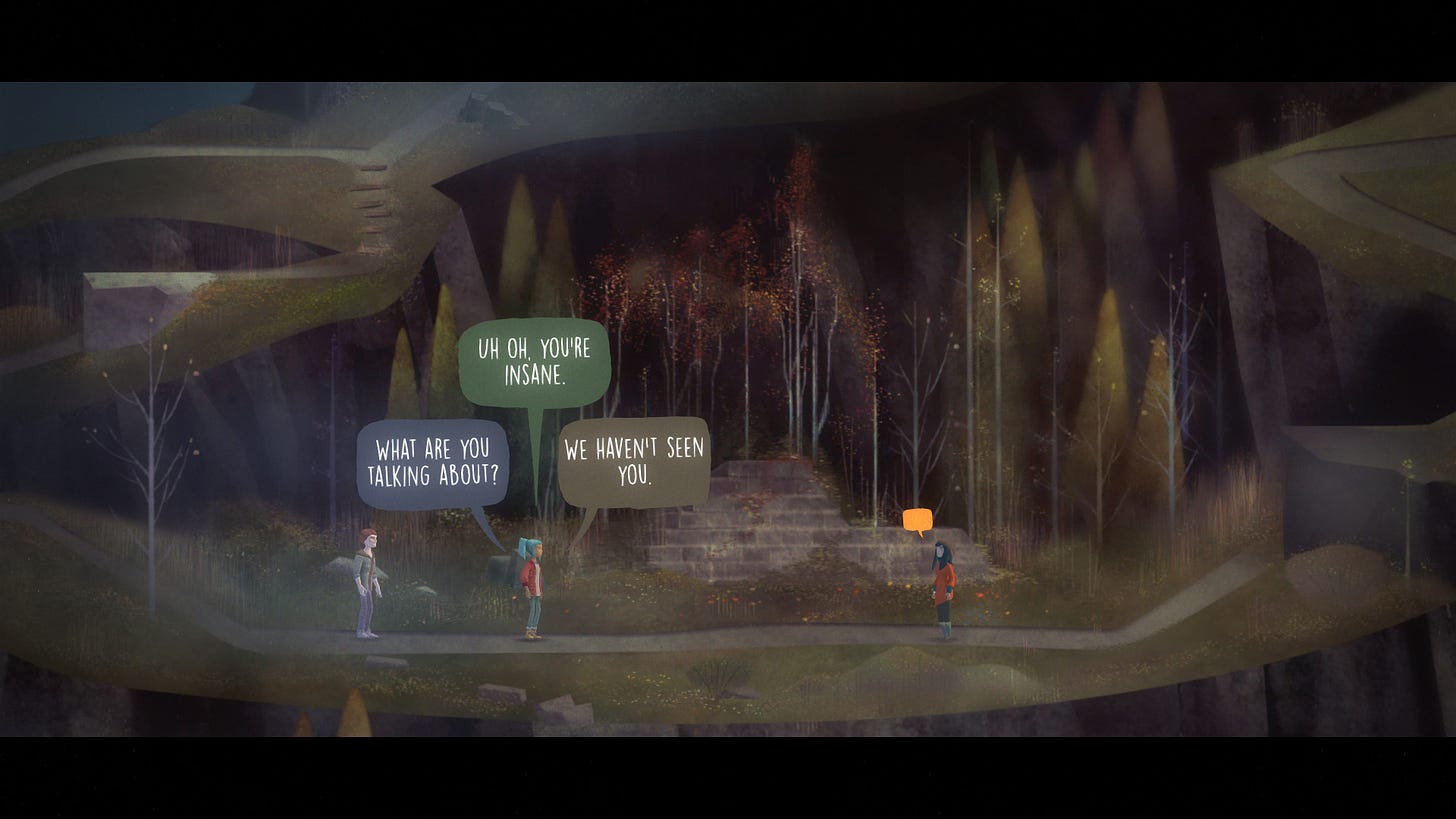
Consequences. I’ve been using that word a lot. When we were young, the word “consequences” usually meant something bad. “You did this, now you have to face the consequences.” Why would you want to do that? Why can’t you just do things and not have them matter? Why does life have to go on?
Then we grow up and understand it a little better: stagnation is bad, change is good. But sometimes, don’t you just want to live in a space where nothing matters, where anything can happen but then it all gets reset so nothing matters?
Earlier I asked, why do we want consequences? What is it about meaning that matters? And even earlier than that, I gave you the answer.
Love and growth.
We like when things matter, because that’s how we grow, and that’s how we show love.
Think about your favorite time loop narrative. How does the hero escape, alone or with help? If with help, who do they ask it from? Someone who cares about them? Someone they trusted enough to tell the truth to, or who was close enough to them that they knew something was wrong? If alone, how did they do it? Are they the same person coming out of the loop as they were going in?
Yes, a lot of media is about showing people go through hardship and come out different. But there’s something special about the time loop narrative because it clearly shows how much love and growth matter.
When you get all the masks from all the townspeople in Majora’s Mask, you get a very special mask that helps you handily defeat the final boss. You get that mask, because you put in the time and effort to help every single person in this doomed world. That’s love.
Colt choosing to pull Juliana into a world of pain and consequence because he wanted her to live a real life instead of living with her in a meaningless reality, that was done out of love.
In Happy Death Day, Tree rekindles her relationship with her father after considering how hard it must’ve been for him too after their mother’s death, and she treats Carter better because of how much he’s helped her even when he didn’t remember it.
In Groundhog Day, Phil realizes how much the town actually matters to him because of how long he’s spent getting to know it. Same with Rita.
The strongest argument for this is, actually Twelve Minutes. There are a few endings and different ways to reach them, and only one of them actually leads to the loops ending: you can stay with your sister-wife and either end in a repeating loop all alone or one with her where you keep dying. You can try to forget all about your sister-wife and this…does nothing, it still causes you to live out the loops. Or you can do this tiny little obscure choice before asking to have your memories erased and blah blah blah it doesn’t matter nothing matters it’s a bad video game. Or rather, it isn’t a fun video game because there’s no growth and there’s no love.
Growth isn’t discovering your wife is your sister, that’s just plot. Growth is a genuine change in you. Growth is seeing the world differently than you did before because you’re someone different now. If there is growth in this game, it’s when the protagonist grows into a guy willing to drug and torture the woman you supposedly love. And it turns out he didn’t even do it because it’s all in his head.
Contrast this to the ending of Majora’s Mask: Link saves the world, he rescues the kid who stole it and helps him too — the same way he’s been helping everyone in this world. At the end, Link goes back to his real world and this new one disappears. He’ll never be able to go back, but he will always take with him the experiences he had. He’s a different person now. He changed lives, but most importantly, he changed himself.
And that’s what makes the difference.
In conclusion, we want things to matter. As much as we think we want to live in a world where we can do anything and never have to suffer consequences, we do want there to be consequences. We don’t want it all to have been for nothing. That’s why we want the hero to escape the loop. We want time to go on. It has to.


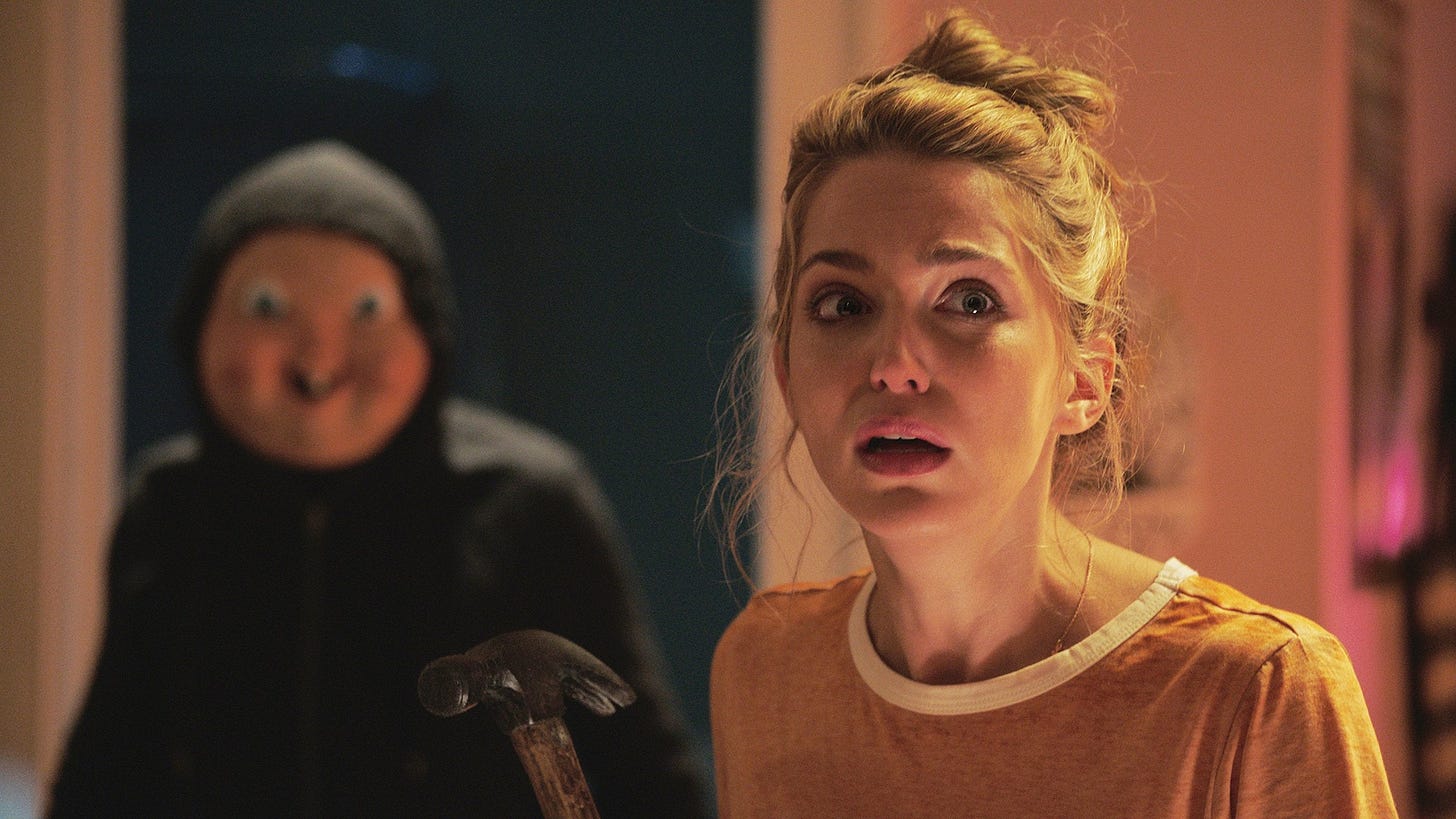
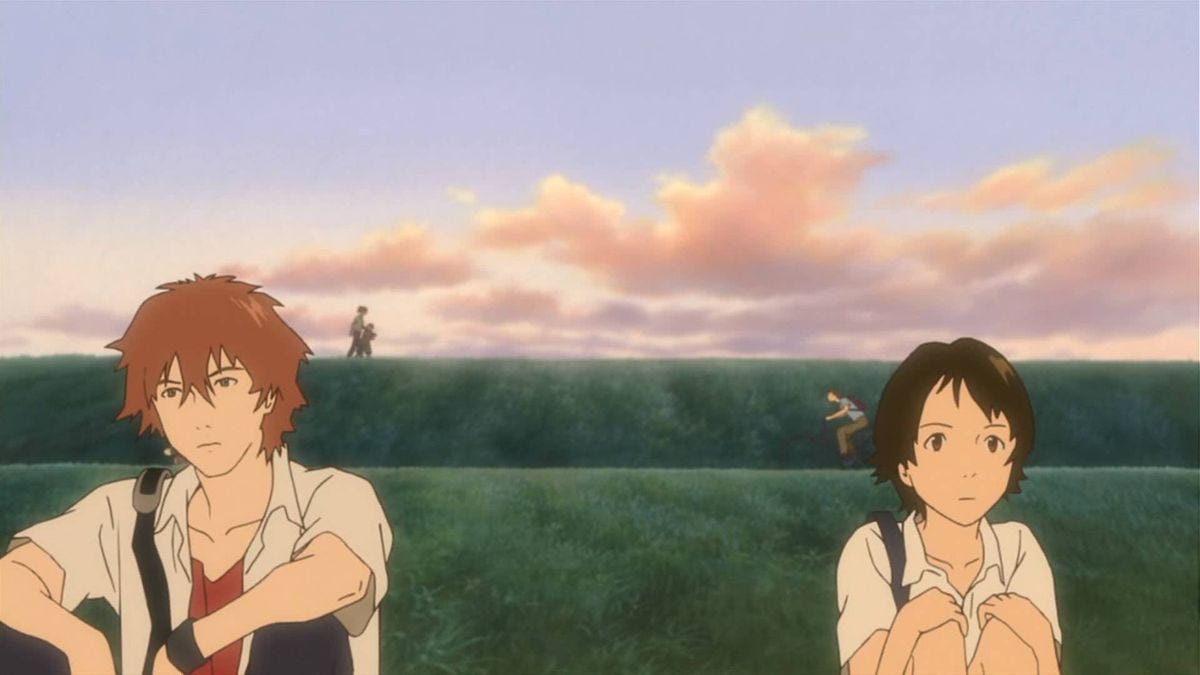
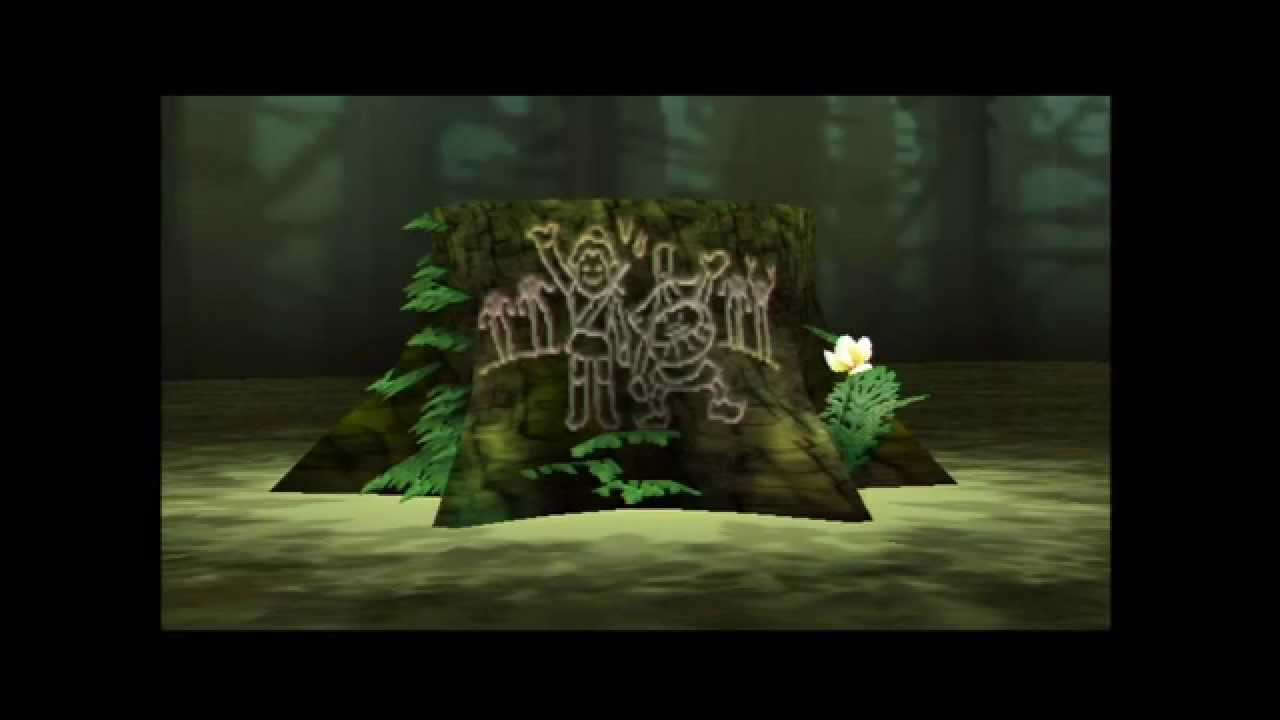
I got to this piece from a link on tumblr, and I really enjoyed this article! The deathloop part is very similar to what happens in the movie "Everything, Everywhere, All at Once" but not exactly timeloops, it's different universes but where the same repetition happens.
I THINK YOU WOULD REALLY LOVE THE VIDEO GAME STAY? !!!!!! i promise this is not spam . even if that's exactly what a spam bot would say,,, (this is all i was thinking about while reading this !!) https://ejadelomax.itch.io/stay